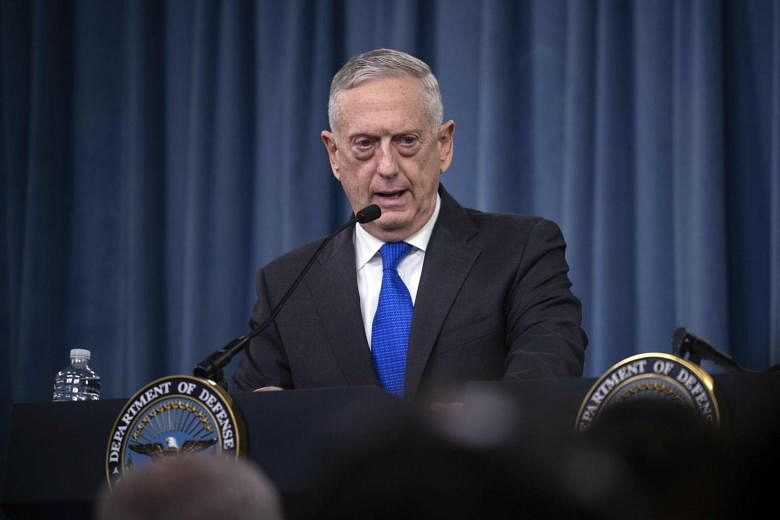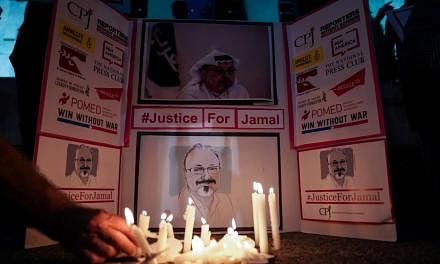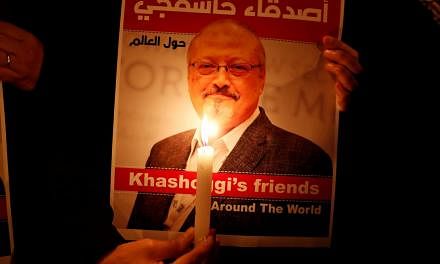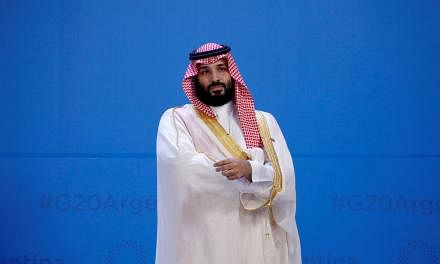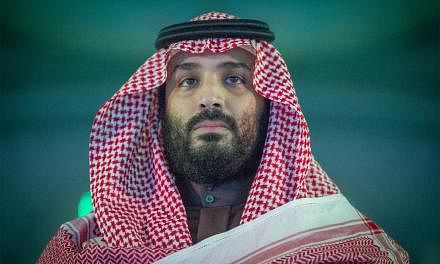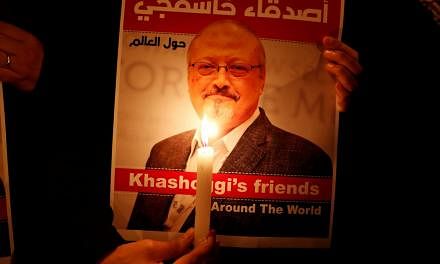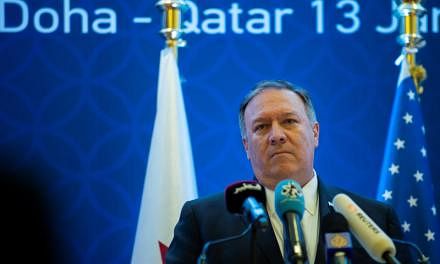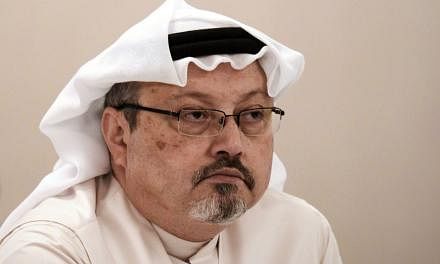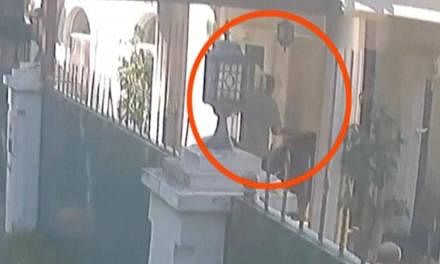WASHINGTON (WASHINGTON POST) - The United States must balance its concerns about Saudi Arabia's human rights record with the need to maintain a "strategic relationship" with the Saudis, Defence Secretary James Mattis said on Wednesday (Wed 21).
In his first extended comments on last month's killing of journalist Jamal Khashoggi by Saudi agents in Istanbul, Mr Mattis told reporters at the Pentagon that "there has to be accountability for anyone involved in the murder. Yes, I'm calling it murder."
"We're not going to apologise for our human rights stance," he said.
"Nor are we going to apologise for working with Saudi Arabia when it's necessary for the good of innocent people who are in trouble."
"Presidents don't often get the freedom to work with unblemished partners," Mr Mattis said.
It was in American interests to work with the Saudis to "stop the humanitarian catastrophe in Yemen," he said.
He also credited the Saudis with assisting in stepped-up US efforts to bring the Taleban and the Afghan government together for reconciliation talks.
Mr Mattis said that Saudi Arabia and the United Arab Emirates, its coalition partner in Yemen, had largely ceased "offensive operations" over the past 72 hours around Hodeida, the key, rebel-held Yemeni port city where Saudi airstrikes have hit civilian targets, including schools, and impeded the delivery of humanitarian aid.
Reports from the ground in and around Hodeida indicated that the airstrikes have stopped, although some ground skirmishes continued. The apparent cease-fire between the US-backed coalition and Iranian-backed Houthi rebels comes as both sides have agreed to attend UN-backed peace talks Mr Mattis said would be held in Sweden in "very, very early December".
President Donald Trump, in an extraordinary statement on Tuesday, cited potential profit from US arms sales to Saudi Arabia and the kingdom's investments in this country as primary reasons for the United States to move past the Khashoggi controversy.
He discounted a CIA assessment, reported by The Washington Post last week, that Saudi Crown Prince Mohammed bin Salman had ordered Khashoggi's killing, saying "maybe he did and maybe he didn't".
Mr Mattis did not mention Mr Trump's statement but said that he did not think that Mohammed's involvement "has been fully established either by the CIA or the Saudi government".
Mr Trump said the United States "may never know all the facts surrounding the murder".
Meanwhile, in a Tuesday interview published by the London-based, Saudi-owned newspaper Asharq Al-Awsat, Saudi Foreign Minister Adel al-Jubeir said that the kingdom's investigation of the killing was continuing but that "the Saudi leadership, represented by King Salman and Crown Prince Mohammed, are a red line, and we will stand against attempts to undermine or harm them".
Media reports about the CIA determination, Jubeir said, "are leaks that are not based on damning evidence. At any rate, we in the kingdom know that such claims are completely baseless."
The Saudi government has repeatedly denied that Crown Prince Mohammed had knowledge of or involvement in the killing. It said it has charged 11 Saudis - agents it said were authorised by a lower-level official only to nab Mr Khashoggi and bring him back to the kingdom - with killing him.
Asked about possible negative repercussions on US arms sales and defence assistance, which bipartisan bills currently before Congress aim to halt over both the Yemen war and the Khashoggi killing, Mr Jubeir said that "We prefer to be armed by our allies, but Saudi Arabia's committment to defend its land and people obligates it to obtain the weapons it needs from any source."
Mr Trump, in his statement, said that if the United States did not sell weapons to Saudi Arabia, long the world's largest purchaser of US defence equipment, the Saudis would turn to Russia and China.
Mr Jubeir criticised what he called a "media campaign and politicization" designed to undermine Saudi Arabia's standing in the world.
He was particularly critical of Turkey, whose government has indirectly accused Crown Prince Mohammed of ordering the killing, which took place during a visit Mr Khashoggi made to the Saudi consulate in Istanbul.
The foreign minister said the kingdom was "keen on preserving this strategic relationship and historic partnership" with the United States "that has extended for over seven decades."
But statements from Ankara, he said, are "creating a rift in our ties" with Turkey.
Turkish Foreign Minister Mevlut Cavusoglu, who met in Washington Tuesday with Secretary of State Mike Pompeo and John Bolton, the White House national security adviser, said that evidence his country has amassed "is not pointing to anybody. But we are pretty sure these people didn't come by themselves and somebody instructed them," he said in a meeting with reporters, referring to the 15-member team of Saudi agents who both countries agree carried out the killing.
Mr Khashoggi, who moved to Virginia last year out of what he said was fear for his safety in Saudi Arabia, was a contributing columnist for The Post whose columns were often critical of Crown Prince Mohammed.
Mr Trump, in his statement, said the Saudi leaders had told him the journalist was an "enemy of the state".
